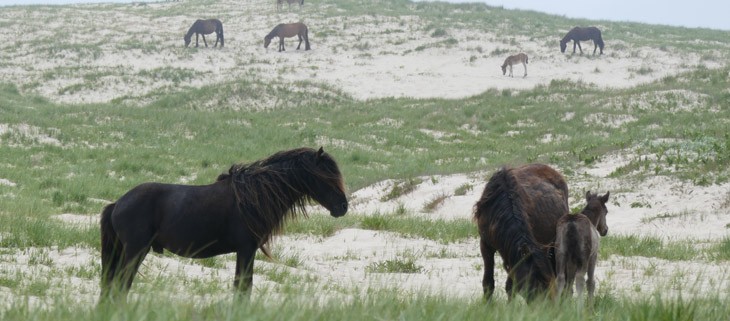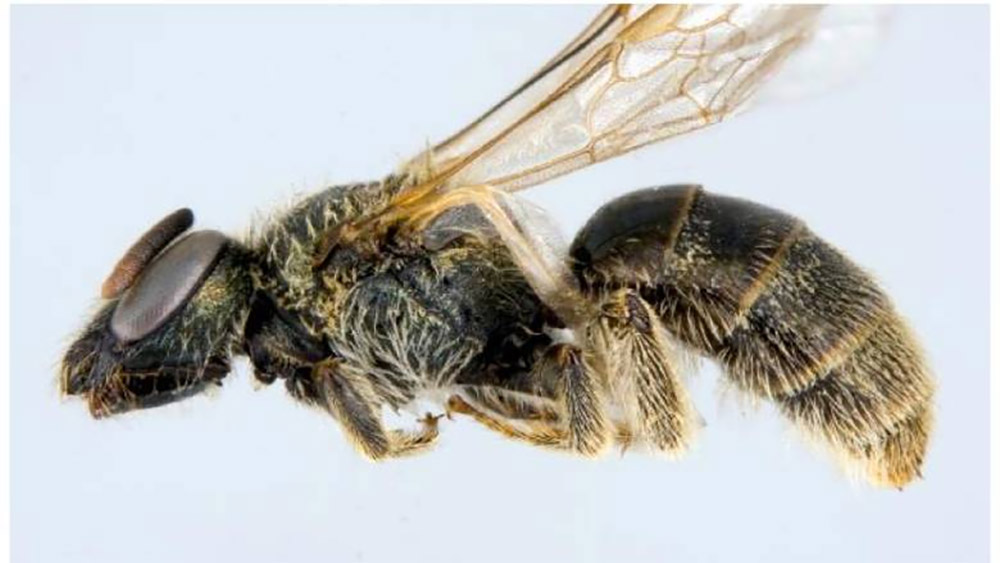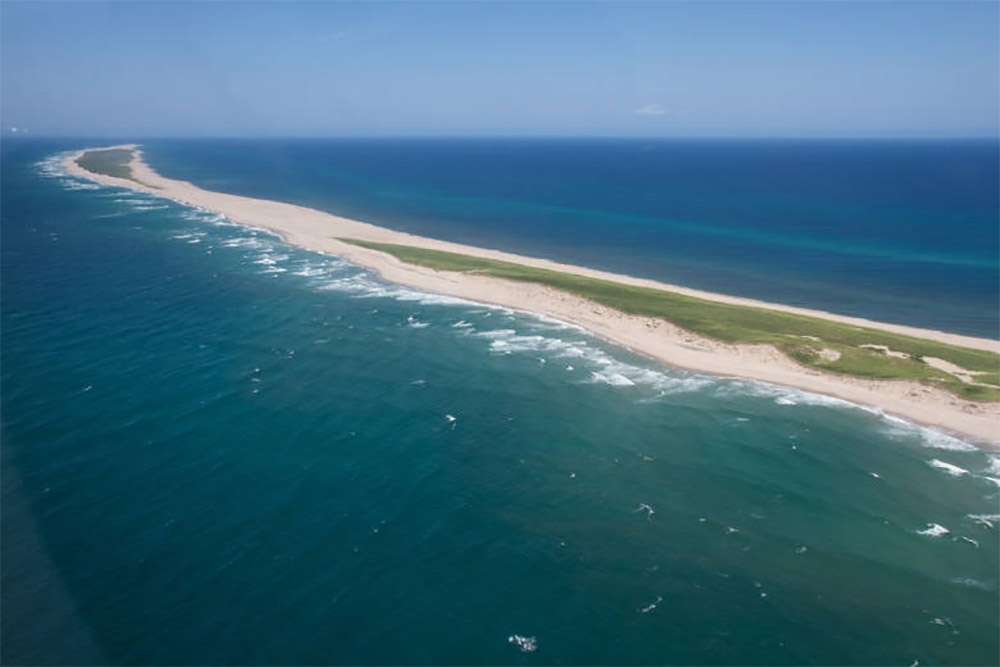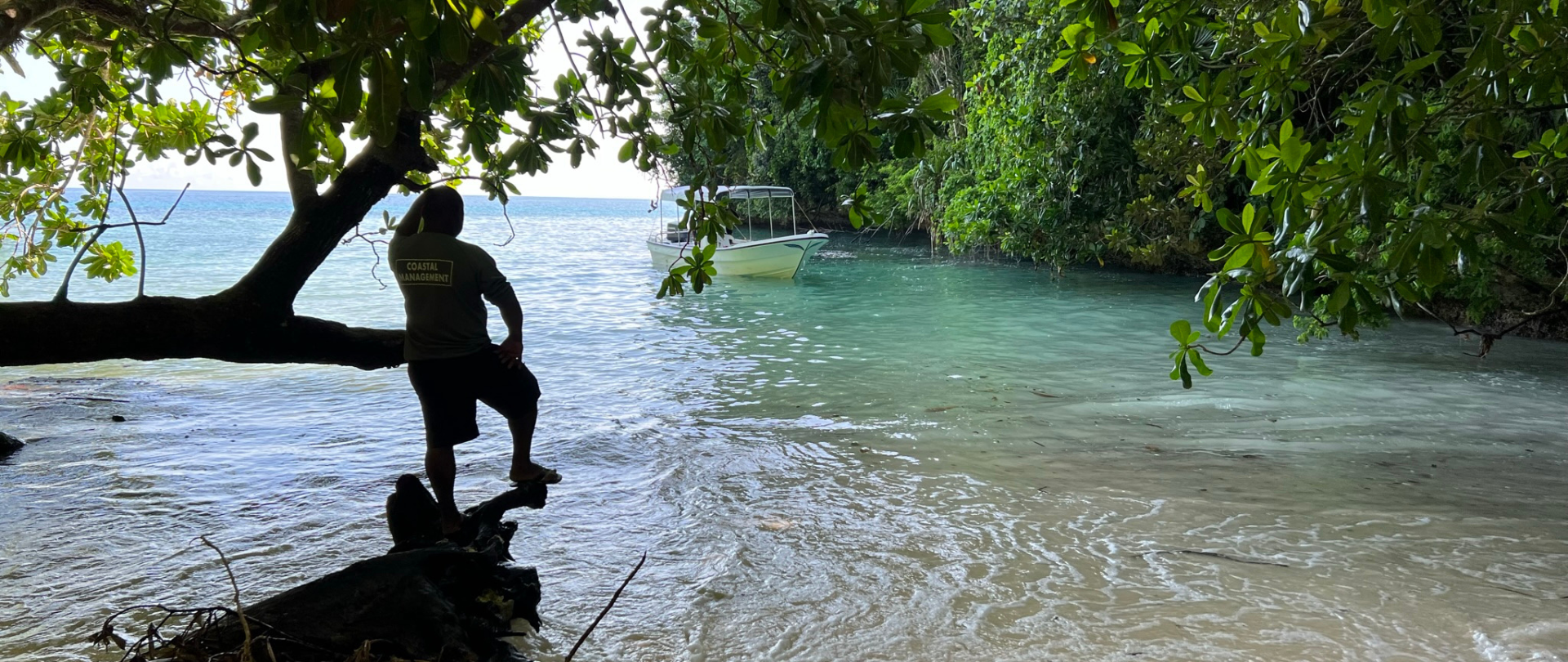October 29, 2025
Data Shows Endangered Palau Ground Doves Swiftly Recovering After Successful Palauan Island Conservation Effort
Astounding evidence of recovery on Ulong Island in Palau after just one year!
Published on
May 17, 2018
Written by
noelle
Photo credit
noelle

The Sable Island Sweat Bee is a tiny ant-sized bee that many people may find unimportant. However, researchers have taken notice of its threatened status due to its sole habitat being Sable Island, Nova Scotia. In 2017 this species was listed as Threatened by the Nova Scotia Department of Natural Resources. Since then, conservationists have begun studying the insect in the hopes of saving it from extinction.

President of the Sable Island Institute Zoe Lucas has studied the island for 40 years, looking at long term relationships between horses, birds, plants, and insects. She is now working on determining the bees’ preferred foraging plants and nesting sites and has been monitoring their population. Due to their tiny size they are hard to find. All of this information will play a crucial role in being able to protect the Sable Island Sweat Bee.
The bee is partially at risk because it is endemic to Sable Island, an island 300 kilometers off the coast of Nova Scotia that never gets wider than 1.5 kilometers because of changing tides. Due to its tiny range the Sable Island Sweat Bee can be threatened by a single physical disturbance like a big storm. Other key threats include the introduction of invasive species and bee-attacking insects.

This little insect plays a very important role in pollinating plants and maintaining the overall island ecosystem. Conserving the Sable Island Sweat Bee protects the whole habitat of the island and all the species on it. Lucas commented:
It’s all about conservation and biodiversity. Biodiversity has been identified as something we need to take very seriously and there’s a serious concern about loss of diversity on the planet.
Dave Shutler, a biologist who studies bees at Acadia University, visited Sable Island and confirmed the crucial role this tiny insect plays in maintaining a healthy island ecosystem. He believes that if the Sweat Bees goes extinct many plant species will disappear along with them. Shutler states that island species in general are highly vulnerable,
They hadn’t the opportunity to co-evolve with all kinds of competitors and predators, so island populations are often more susceptible than mainland populations.
Conservationists are worried about the future of the bee but are starting to take the measures necessary to figure out how to protect them.
Featured photo: Wild horses of Sable Island. Credit: Wikimedia Commons/Gierszep
Source: CBC
Check out other journal entries we think you might be interested in.

October 29, 2025
Astounding evidence of recovery on Ulong Island in Palau after just one year!

May 19, 2025
Read our position paper on The 3rd United Nations Ocean Conference (UNOC 3) to see why we're attending and what we aim to accomplish!

December 4, 2024
Ann Singeo, founder of our partner organization the Ebiil Society, shares her vision for a thriving Palau and a flourishing world of indigenous science!

November 22, 2024
This historic agreement aims to protect the marine and coastal areas of the Southeast Pacific.

November 18, 2024
Our projects to restore key islets in Nukufetau Atoll forecast climate resilience and community benefits in Tuvalu!

October 3, 2024
Island Conservation and partners have published a new paper quantifying ecosystem resilience on restored islands!

September 10, 2024
Climate Week NYC: what is it and why is it important? Read on to find out why Island Conservation is attending this amazing event!

September 5, 2024
With sea levels on the rise, how are the coastlines of islands transforming? Read on to find out how dynamic islands really are!

December 14, 2023
Join us in celebrating the most amazing sights from around the world by checking out these fantastic conservation photos!

November 28, 2023
Rare will support the effort to restore island-ocean ecosystems by engaging the Coastal 500 network of local leaders in safeguarding biodiversity (Arlington, VA, USA) Today, international conservation organization Rare announced it has joined the Island-Ocean Connection Challenge (IOCC), a global effort to…